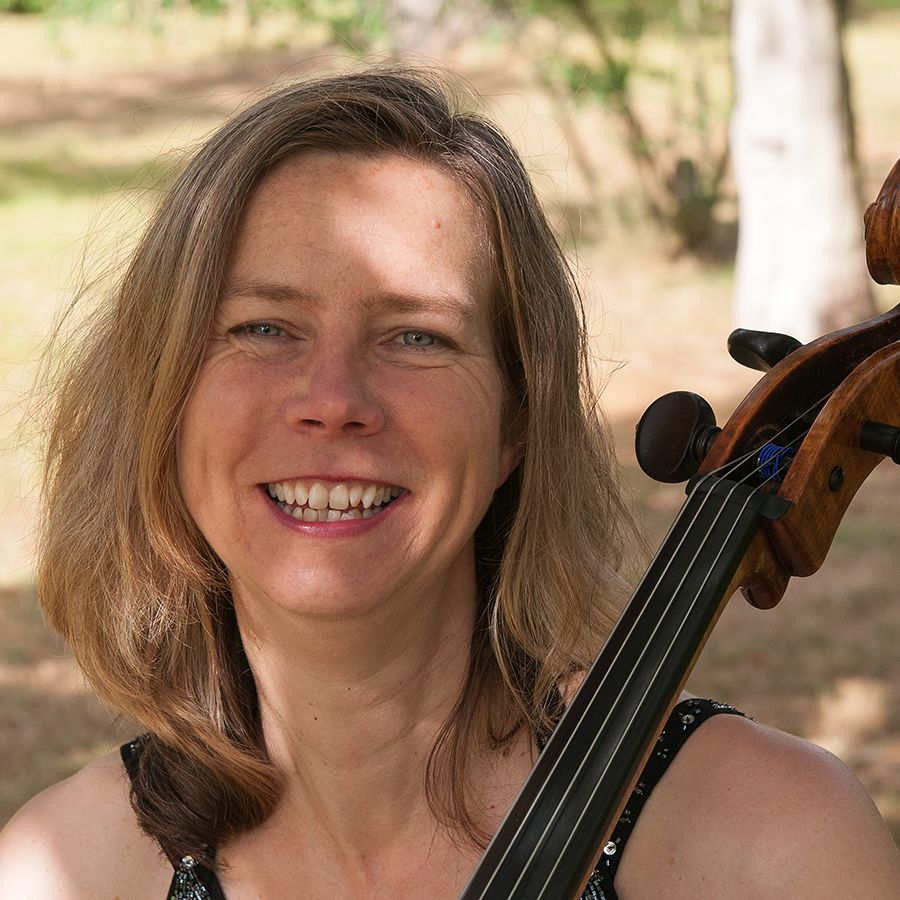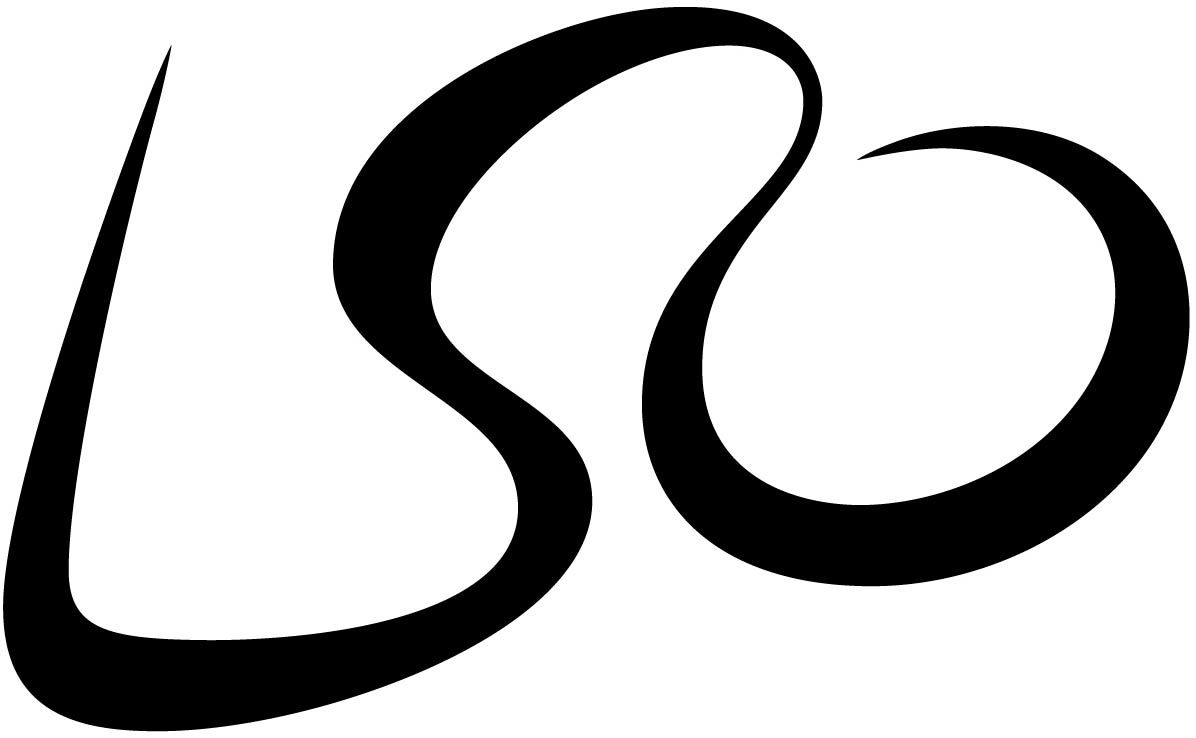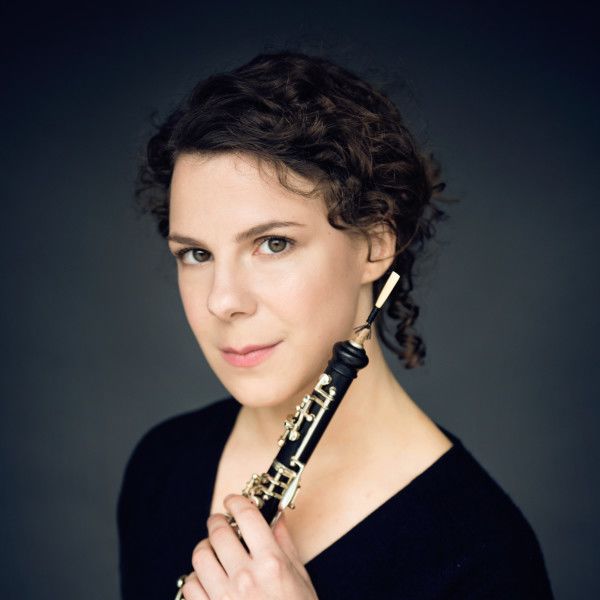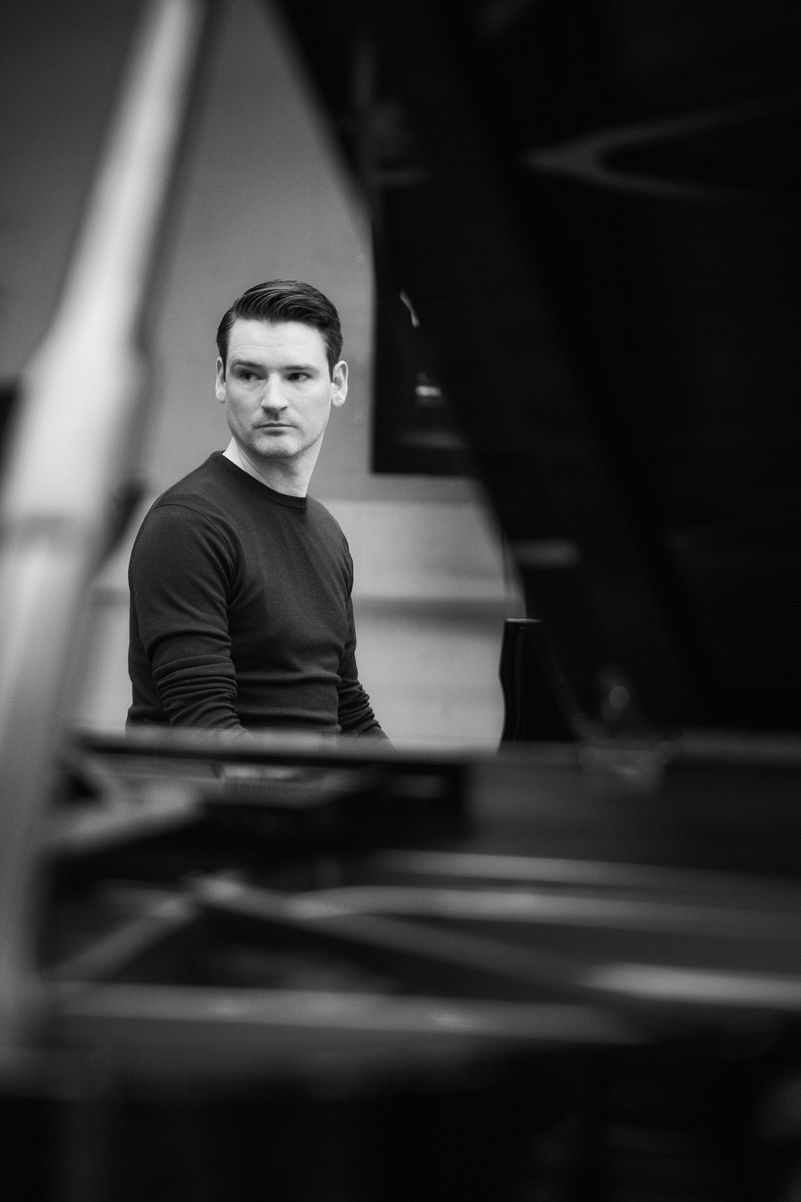LSO Summer Shorts
LSO Trio
27 August 2021

You can use your phone to read about the music and performers during the concert. Use the menu icon (≡) in the top right of the screen to navigate.

Free WiFi
There is free WiFi available in the Jerwood Hall. Connect to the 'hawksmoor' network.
Please Note
Phones should be switched to silent mode. We ask that you use your phone only for reading the notes during the music. Photography and audio/video recording are not permitted during the performance.
Today's Programme
Friday 27 August 2021 11am & 1pm
Robert Schumann arr Theodor Kirchner Movements 2, 3 and 5 from Six Canonic Studies
Nadia Boulanger arr Katherine Needleman Trois Pièces
Sergei Prokofiev arr Lera Auerbach Violin Sonata No 2
Juliana Koch oboe
Rebecca Gilliver cello
Michael McHale piano
This series of Summer Shorts concerts is made possible by the kind support of the Huo Family Foundation.
Today's 1pm concert will be live streamed at youtube.com/lso.
Robert Schumann arr Theodor Kirchner
Movements 2, 3 and 5 from
Six Canonic Studies Op 56
✒️ 1845 | ⏰ 8 minutes

2 Mit innigem Ausdruck
3 Andantino
5 Nicht zu schnell
Six Canonic Studies is the first of Schumann’s three 1845 contrapuntal compositions for pedal-piano – a piano fitted with a pedal-board resembling that of an organ. A canon is the simplest contrapuntal form, in which two or more voices present the same melody in overlapping succession (think Frère Jacques). The second of Schumann’s Six Studies, Mit innigem Ausdruck (with intimate expression) is wistfully tender, with the canon creating a gentle echo effect. The elegant No 3, Andantino, features more complex textures. No 5, Nicht zu schnell (not too fast), is a strongly-accented rustic dance, with an unexpectedly delicate conclusion.
Despite Schumann’s enthusiasm, the pedal-piano never caught on, and his Studies are usually heard in arrangements, including one by Debussy for two pianos and another by David Matthews and Orlando Jopling for piano quartet. This arrangement by Theodor Kirchner was originally written for violin, cello and piano, but will be performed today with the oboe taking the role of the violin.
Note by Kate Hopkins
Robert Schumann
1810 to 56 (Germany)

Robert Schumann was born in Zwickau, Germany into a literary family. In 1829 he travelled to Leipzig to study law, but soon took instead to piano studies with the professor Friedrich Wieck – whose daughter, Clara, still a child, soon became famous as a virtuoso prodigy throughout Europe.
By the time Clara was 16, she and Schumann were deeply in love and wished to become engaged. Such was Wieck’s virulent opposition that after four hopeless years the young couple sued him for the right to marry – and won. It was for Clara, during the turbulent time preceding this happy outcome, that Schumann wrote a flood of piano music, often filled with musical messages to her. The couple subsequently had seven surviving children; Clara, as a celebrated pianist, remained the family’s chief breadwinner.
Schumann approached composition with obsessive energy; when he experienced depression, however, he found it impossible to write at all. Starting out as an original, radical figure, he leaned towards experimental forms and groundbreaking expressive means, from which Clara sometimes tried to discourage him. He worked extremely fast, often devoting himself to creating works in one medium for a year or more.
In 1854 Schumann attempted suicide, and thereafter entered a psychiatric hospital at Endenich, near Bonn, where he died in July 1856, aged 46.
Profile by Jessica Duchen
Recommended listening
Robert Schumann Symphony No. 1 in B-Flat Major, Op. 38: II. Larghetto
Nadia Boulanger arr Katherine Needleman
Trois Pièces
✒️ 1911 to 14 | ⏰7 minutes

1 Modéré (Moderate)
2 Sans vitesse et à l’aise (Unhurried and at ease)
3 Vite et nerveusement rhythmé (Fast and nervously rhythmic)
The renowned composer Nadia Boulanger was never satisfied with her own compositions – particularly in comparison to those of her sister Lili – and gave up writing music in the early 1920s. Her teacher Gabriel Fauré told her this was a mistake, and the beauty of these Trois Pièces suggests he was right. Boulanger originally wrote them for organ in 1911, rescoring them for cello and piano in 1914. The opening movement is dreamy, almost languorous, with delicate imitation between the instruments. The second movement’s melodic simplicity and harmonies show the influence of Fauré at his most serene. By contrast, the finale’s rhythmic vitality, rapid shifts of mood and jaunty melodies seem to anticipate French composer and pianist Francis Poulenc (1899 to 1963).
Oboist Katherine Needleman’s arrangement makes expressive use of the contrasting timbres of oboe, piano and cello, and she has kindly given special permission for these two performances by today's trio.
Note by Kate Hopkins
Nadia Boulanger
1887 to 1979 (France)

Nadia and her sister Lili Boulanger were born in Paris, daughters of a French musician and a Russian princess. Both were encouraged towards music from early childhood by the composer Gabriel Fauré, a close family friend.
After studying composition with Fauré and Widor at the Paris Conservatoire, Nadia was promoted as a concert pianist and organist by the virtuoso pianist Raoul Pugno; from 1904 until his death in 1914, they often appeared on the same platform. She is remembered as one of the foremost composition teachers of the 20th century and one of the first female conductors, making her professional debut in Paris in 1934.
Boulanger was also an important figure in American musical life. She toured the country as an organist in 1925 and lived there during World War II, conducting the Philadelphia Orchestra and New York Philharmonic amongst others, and teaching at the Juilliard School. Despite increasing deafness and failing sight, she continued working almost until the end of her life.
Sergei Prokofiev arr Lera Auerbach
Violin Sonata No 2
✒️ 1944 | ⏰ 24 minutes

1 Moderato
2 Presto – Poco più mosso del – Tempo I
3 Andante
4 Allegro con brio – Poco meno mosso – Tempo I – Poco meno mosso – Allegro con brio
In 1943, Prokofiev’s friend David Oistrakh suggested to the composer that he arrange his 1942 Flute Sonata for violin and piano. Prokofiev was enthusiastic, and the piece received its premiere on 17 June 1944 – more than two years before that of the First Violin Sonata. The performers were Oistrakh and the pianist Lev Oborin.
In comparison to the dark, brooding First Violin Sonata, this second sonata is sunny in mood. The first movement displays Prokofiev’s enduring fascination with the Classical style. Its first movement is lyrical with slightly tart harmonies. The second includes lively folk-like writing and has a sardonic quality to it, along with contrastingly pensive passages. The third movement is a tender ‘song without words’, with a Blues-like episode that illustrates Prokofiev’s love of jazz. The final movement has a swaggering main theme that alternates with gentler material, including an episode containing sonorous bell-like piano writing. The final section contains plenty of virtuoso display – and a few harmonic surprises.
This arrangement of the Second Violin Sonata as a trio was made by the Russian composer Lera Auerbach.
Note by Kate Hopkins
Sergei Prokofiev
1891 to 1953 (Russia)

Prokofiev was born in Ukraine and was encouraged to study music from an early age by his mother, a keen amateur pianist. The young Sergei showed prodigious ability as both composer and pianist, gaining a place at the St Petersburg Conservatory at the age of 13 and shortly thereafter acquiring a reputation for the uncompromising nature of his music. According to one critic, the audience at the 1913 premiere of the composer’s Second Piano Concerto was left ‘frozen with fright, hair standing on end’. He left Russia after the 1917 Revolution, but decided to return to Moscow with his wife and family 19 years later, apparently unaware of Stalin’s repressive regime.
Before he left for exile, Prokofiev completed his ‘Classical’ symphony, a bold and appealing work that revived aspects of 18th-century musical form, clarity and elegance. He received commissions from arts organisations in the United States and France, composing his sparkling opera The Love for Three Oranges for the Chicago Opera Company in 1919–20. His engagements as a recitalist and concerto soloist brought Prokofiev to a wide audience in Europe and the US, and he was in great demand to perform his own Piano Concerto No 3. The ballet Romeo and Juliet and the score for Feinzimmer’s film Lieutenant Kijé were among Prokofiev’s first Soviet commissions, dating from the early 1930s. Both scores were subsequently cast as concert suites, which have become cornerstones of the orchestral repertoire.
‘The Fifth Symphony was intended as a hymn to free and happy Man, to his mighty powers, his pure and noble spirit’: Prokofiev wrote these comments in 1944 as the Russian army marched towards Berlin, reflecting his sense of hope in the future. Sadly, his later years were overshadowed by illness and the denunciation of his works as ‘formalist’ by the Central Committee of the Communist Party in 1948.
Profile by Andrew Stewart
Recommended listening:
Sergei Prokofiev: Romeo & Juliet, Op. 64, Act I: Scene XIII, Dance of the Knights
Artist Biographies

Juliana Koch
LSO Principal Oboe
Before joining the LSO in 2018, Juliana Koch played as Principal Oboe at the Royal Danish Opera in Copenhagen and at Teatro alla Scala in Milan – and further became a laureate of the ARD International Music Competition 2017. Since then she has been an in-demand soloist, debuting at the Berlin Philharmonie in 2019 with the Strauss Oboe Concerto and the Deutsches Symphonie-Orchester Berlin. Other solo engagements include appearances with the Symphonieorchester des Bayerischen Rundfunks, the Estonian National Symphony Orchestra and the Hungarian National Philharmonic among others.
Recitals and chamber music performances brought her to Musica Viva’s Huntingon Estate Music Festival in Australia, Lucerne Festival, Bachfest Leipzig, the Bamberg Konzerthalle and Deutschlandfunk Köln. A sought after Guest Principal, Juliana has appeared with the Symphonieorchester des Bayerischen Rundfunks, Philadelphia Orchestra, Chamber Orchestra of Europe, and Los Angeles Philharmonic Orchestra. Juliana studied with François Leleux in Munich and Fabian Menzel in Frankfurt, she plays a Marigaux M2 oboe.
Rebecca Gilliver
LSO Principal Cello

Rebecca Gilliver studied at the Yehudi Menuhin School and Royal Northern College of Music where her teachers included Melissa Phelps, Moray Welsh and Ralph Kirshbaum. She also spent a year studying mostly contemporary music in Basel with Thomas Demenga. Originally joining the LSO as Co-Principal in 2001, Rebecca became Principal in 2009. She has played as Guest Principal with orchestras all over the world, including with the Australian Chamber Orchestra, New Sinfonietta Amsterdam and the World Orchestra for Peace.
Rebecca has played extensively as a recitalist including at the Wigmore and Carnegie Weill Hall. As a chamber musician Rebecca has played and recorded with major artists such as the Nash Ensemble and is a regular participant at the renowned IMS Prussia Cove Open Chamber Music, (playing in their Wigmore Hall concert to a socially distanced audience this October!) A professor at the Guildhall, Rebecca has also given classes at the Royal Academy of Music and the Royal College amongst others. She runs her own cello course, The Dorset Cello Classes, and is a regular coach at Alpinekammermusik and the Aboyne Cello Festival.

Michael McHale
piano
Belfast-born Michael McHale has established himself as one of Ireland’s leading pianists and has developed a busy international career as a solo recitalist, concerto soloist and chamber musician.
He has performed and recorded as a soloist with the Minnesota and Hallé Orchestras, the Moscow, Bournemouth, Jacksonville, Fort Smith, BBC and London Symphony Orchestras, City of London Sinfonia, London Mozart Players and all five of the major Irish orchestras, and performed at the Tanglewood and Tokyo Spring Festivals, Wigmore Hall, London, Berlin Konzerthaus, Lincoln Center, New York, Symphony Hall, Boston and Pesti Vigadó in Budapest.
Winner of the Terence Judd/Hallé Award in 2009, Michael was also awarded the Brennan and Field Prizes at the 2006 AXA Dublin International Piano Competition, the 2005 Camerata Ireland/Accenture Award, and in 2016 a Major Individual Award from the Arts Council of Northern Ireland. He studied at the Royal Irish Academy of Music, Cambridge University and the Royal Academy of Music, and his teachers and mentors include John O’Conor, Réamonn Keary, Christopher Elton, Ronan O’Hora and Barry Douglas.
In 2017 Michael was invited to become a Patron of the Ulster Youth Orchestra, and in 2018 he was appointed lecturer in piano for undergraduate and postgraduate students at the MTU Cork School of Music in Ireland.
Michael collaborates regularly with Sir James Galway, Michael Collins, Patricia Rozario, Dame Felicity Lott and Camerata Pacifica.
Thank You for Watching
The London Symphony Orchestra was established in 1904. Through inspiring music, educational programmes and technological innovations, the LSO’s reach extends far beyond the concert hall.
Still to Come

Autumn at LSO St Luke's
Lunchtimes from Friday 10 September
Two new series of lunchtime concerts
return to LSO St Luke's this autumn
FREE FRIDAY LUNCHTIME CONCERTS
Free, 45-minute, informal concerts, with introductions from presenter Rachel Leach.
BBC RADIO 3 CONCERTS: HAYDN PLUS
Soloists and ensembles tease out the wit, warmth and wisdom of Haydn’s music, pairing his greatest chamber works with pieces that bear the traces of his influence.
Support the LSO and LSO St Luke's
The importance of music and the arts has never been more apparent than in recent months, as we’ve been inspired, comforted and entertained throughout this unprecedented period.
As we emerge from the most challenging period of a generation, please consider supporting our Always Playing Appeal to sustain the Orchestra and our venue LSO St Luke's, assist our recovery from the pandemic and allow us to continue sharing music with the broadest range of people possible.
Every donation will help to support our future.
You can also donate now via text.
Text LSOAPPEAL 5, LSOAPPEAL 10 or LSOAPPEAL 20 to 70085 to donate £5, £10 or £20.
Texts cost £5, £10 or £20 plus one standard rate message and you’ll be opting in to hear more about our work and fundraising via telephone and SMS. If you’d like to give but do not wish to receive marketing communications, text LSOAPPEALNOINFO 5, 10 or 20 to 70085. UK numbers only.


